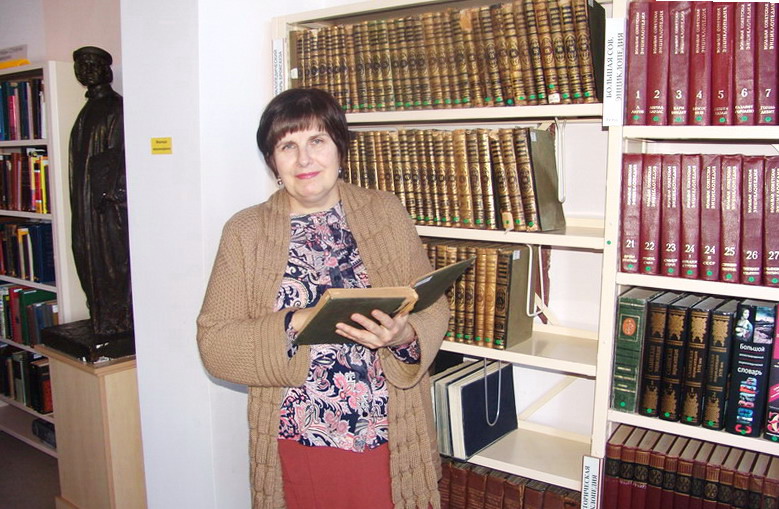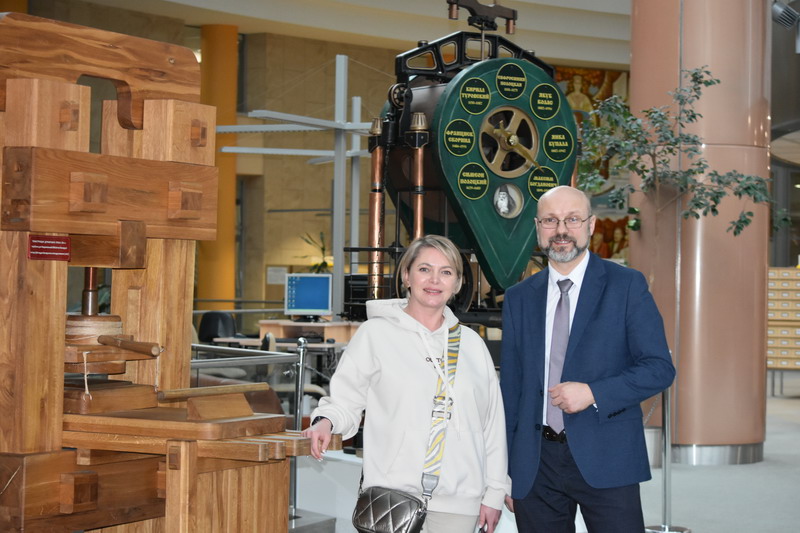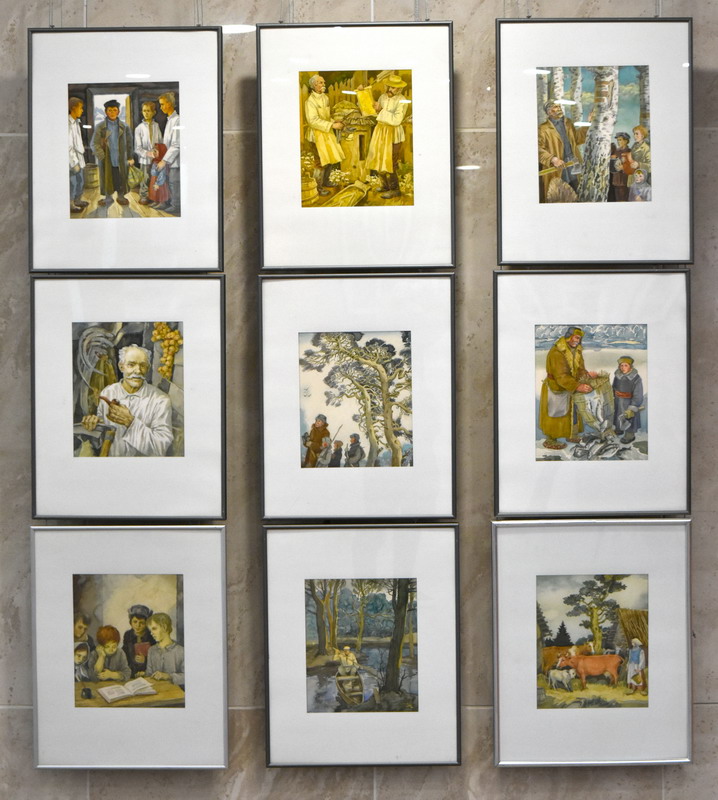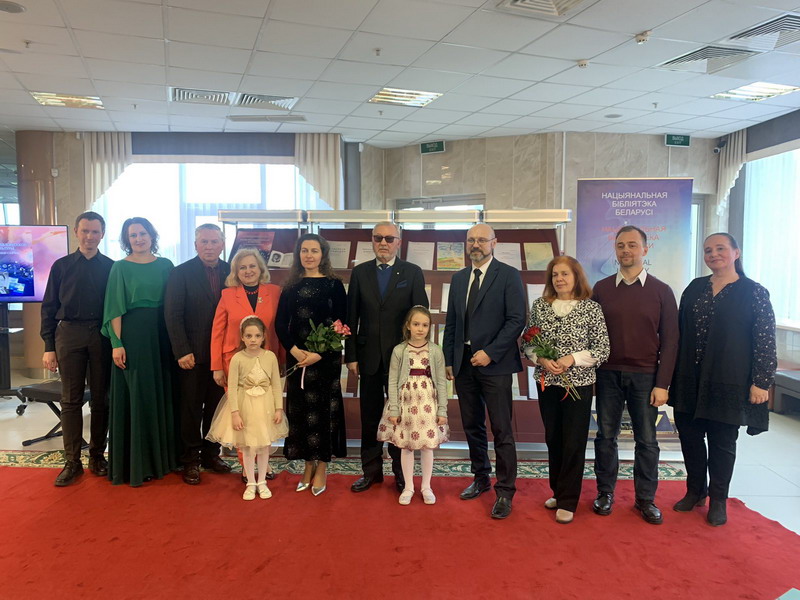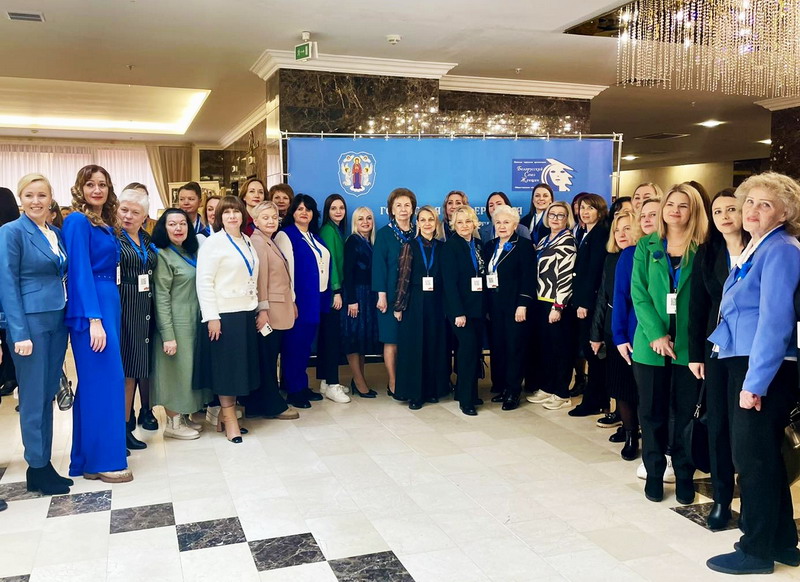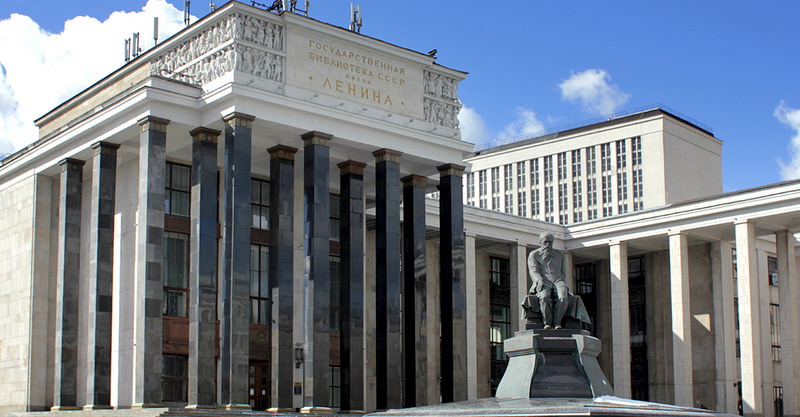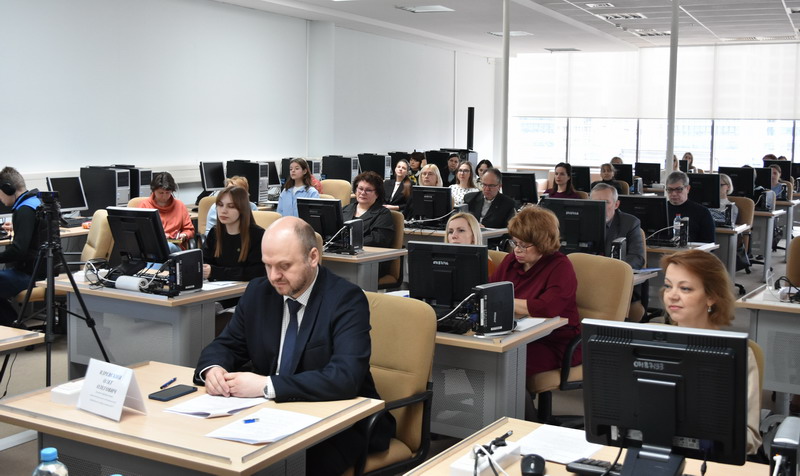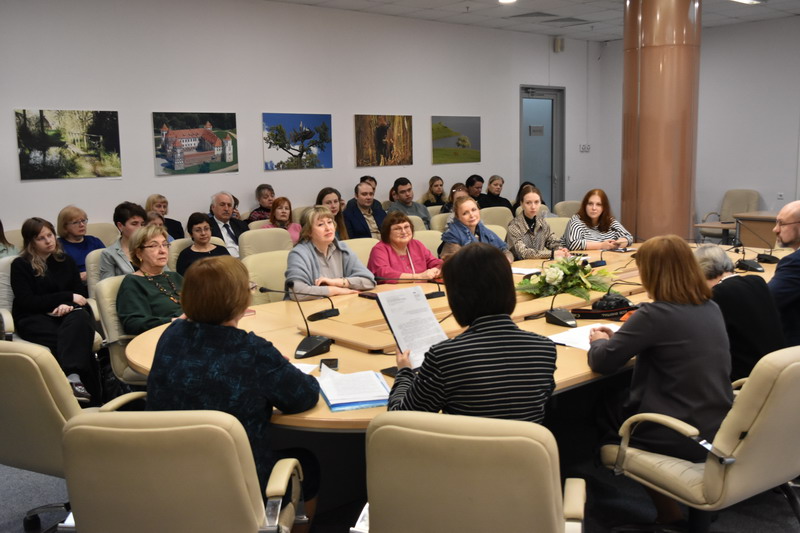Mrs Lyudmila Silnova, a poet, a writer, and a bibliographer celebrates her anniversary. We joined in the congratulations and interviewed our colleague. Here’s the second part of the interview.
In the final part of the interview, Mrs Silnova shares her thoughts on the modern literary community and talks about the Super-Reader, The Enchanted Country, and the source of inspiration for a Poet.
– I remember the first time I saw your Rysaslovy (Linewords) in the Krynitsa magazine. It was like a culture shock for me, and at the same time, I was in awe. It never occured to me that you could write poetry like that! Tell me, how did you come up with an experiment in poetry? Who inspired you?
– I loved experimenting with things since childhood. I would crumple newspapers, disassemble rattles, tear green leaves for trimming, follow the spring water flow along the curbs, and mix pencil lines or colors in search of new shades... After all, my uncles were chemists! The experimentation was in my blood. Back at school, I preferred writers who made sketches, either on the margins of their manuscripts, or on easels, or in their notebooks, like Alexander Pushkin, Mikhail Lermontov, Vladimir Mayakovsky, Velimir Khlebnikov, Uladzimir Karatkievich, Vasil Bykov, Alexander Ryazanov... I consider myself an apprentice of Mr Ryazanov. Not full time, but through distance learning. In the 1980-1990s, we had several important artistic conversations. It was like an exam. He even gave a name for one of my experimental genres – Rysaslovy.
Prior to my first publication in the Krynitsa youth magazine, my own name for these sketches was a bulky mishmash, graphic images of words. Mr Ryazanov inspired me to move on! He cultivated a concept of simplicity, a multi-layered piece and a certain impudent poetic fearlessness in me. I still admire what he does in the Belarusian literature. (In adulthood, we became almost the same generation: each of us has grown older and the age gap has decreased).
Mrs Evgenia Galievskaya, Head of the Section of the Special Collections Service Department: “Mrs Silnova’s early works can be compared to Malevich's Black Square. This art is not for everyone, it's experimental and sometimes hard to grasp. Over time, her poetry changed, developed, and matured. What Mrs Silnova writes now resonates deep in our hearts. I can say for sure that Lyudka Silnova succeeded as a poet!

– I once heard the following opinion in a private conversation: an author writing in Belarusian limits his or her readership. Anyone who wants to become truly popular (that is, widely read) should write in Russian, or, better yet, in English. How can you object to it? What can be said in defense of the Belarusian-speaking authors?
– I like the Belarusian language as an author most of all: it is my own, it flows in my veins, echos unexpected rhymes in my head and, most importantly, it is very suitable for my creative experiments. Just as the scholars and poets of European countries who used the Latin language in the Middle Ages, Belarusian scientists (primarily humanities) and writers in the beginning of the 21st century realize their talents through their native Belarusian language.
For me, the Belarusian language is the high language of poetry. It is not a language of streets, shops, hospitals, multilingual crowds of the capital... I would compare the Belarusian language with a dessert. The Russian language is soup. While English is a substantial meal for a second course. If your literary piece (or pieces) has all three options, then you are a true restaurateur, i.e. real market player. However, my lot is non-profit literature. You can compare it with a small cozy cafe. For one’s own pleasure, for the neighbors ... Oh, well... There is a demand for such too.
– Today, people don't read much in general, and even less in Belarusian. So who is this Super-Reader, for whom Belarusian-speaking authors write? Where do you find your readership?
– I don’t look for readers on purpose. The image of the Super-Reader, which I have come up with long ago, is enough for me: “There they are, my Super-Readers. They let my fantasies live so that I cannot stop writing”... Is he or she the literary philosopher Igor Bobkov’s Hero of the War for Transparency? Such things are hard to put into words. I can absently draw something...
– The Enchanted Country is often mentioned in your pieces. Is this an allegory? Or is it a parallel reality, a kind of a fantasy world like Narnia or Tolkien universes? When exactly did you discover this Enchanted Country? Or has it always been with you?
– The Enchanted Country was the title of one of my poems (it later became part of the same-name collection). There is another one, a little longer and with explanations. These poems are about a mythical country that has some similarities with the Principality of Polotsk, the Grand Duchy of Lithuania, an empire, a modern republic but through the eyes of the narrators. Like in the iconic Solaris movie... On the other hand, The Enchanted Country is a universe of all those images that an author keeps in his or her imaginative closet. Perhaps even since childhood... As for the trendy fantasy books and magical countries like Narnia, the popularity of Tolkien, – these are all commercial literature pieces, well-crafted and polished by marketing managers. I wrote some verses-visions in this style once (for example, The Muse and the Sword). As an experiment.

– It always seemed to me that an artistic person, be it a poet, a writer or a painter, is partly a magician or a fortune-teller. Have your poems turned out to be prophetic? Can art influence and change reality?
– I believe that art not only can but also should influence reality (“With nanotechnology / I'd like to have a word”), change it for the better – both for humans and for our common ecosystem as a whole. Therefore, generally speaking, a poet or an artist is a scientist (trained in an educational institution and taught by his own life experience), a practitioner, a fortune-teller in some ways, and a magician for someone... Sometimes I experienced such magical coincidences. Once I wrote for The Belarusian Sonnet Anthology the only sonnet in my experimental art luggage called The Cornflowers. It was my very first sonnet, and it was selected for the edition! Coincidentally, the designer decorated the cover and pages with cornflowers (it surprised and excited me). At the very end of the sonnet, there were these lines about the blue field flowers: "Messengers of heaven, jewels on the human ways". And recently, all the newspapers and television channels announced that Belavia had ordered a new series of aircraft, which would expand in the future. It will be in blue and white, the tail and the interior will be decorated with nothing else than... a cornflower. What a coincidence! Or is it a vivid example of some latent, hidden, but fruitful power of a poet?
– How has the Belarusian literary community changed compared to the eighties or 2000s? Is there more sincerity or, on the contrary, more snobbery and chase for trends?
– Compared to the 80s, when I was just starting (long before my literary printed circuits), I had more hope and trust in myself, in my colleagues, in the human beings as phenomenal earthly creatures... Today there is more bitterness in my observations and reasoning. As in my new poems (which you haven't seen yet). The so-called trends grew wider in the shoulders and hips, became louder and more impudent. They are knocking on the doors of all institutions...
– Many young writers prefer to write in trendy genres, which are either not represented at all in the Belarusian literature or are poorly represented. For example, Vladimir Sadovsky wrote a zombie horror, Andrus Horvat published his own blog, Roman Svechnikov hitchhiked around the world and published his travel notes. At the same time, no one seeks to create something fundamental, multi-volume. Is the latter unnecessary? Should the authors focus on filling the gaps so that Belarusian literature is in line with the Zeitgeist?
– I personally am against filling the gaps with pieces in the Belarusian language. It comes off as some servility, something secondary and formal. Something not elevating, but self-asserting... Perhaps geniuses like Maxim Bogdanovich could be an exception. As for large-scale books, we just don’t have enough time.
– It is no secret that in any society there are certain downsides that a poet, an artisitc person, feels especially acutely, even painfully. On the other hand, poems grow out of pain. Is anguish a normal state for a poet?
– Anguish and pain are not a normal state for a poet. A normal state for a poet is a joy of inspiration, art, and recognition... I do not like the tendency to view people of art as insane and weak. I try to create more positive and strong ideas with my art and life. I, Lyudka Silnova, am a Strong Person.
Mrs Evgenia Galievskaya: Mrs Silnova is more of a poet than a librarian. Art is a need that comes from the soul, and it is impossible to learn. A poet must be born. Mrs Silnova, a poet by nature, sees the world unlike us. She is able to discern something that we simply would not ignore in art pieces and in the most down-to-earth things. Mrs Silnova is a unique person. She is not like us. She is different. And it’s wonderful, just wonderful, that there are such people!
Thank you for the interview.
On behalf of the staff of the National Library of Belarus, please accept our sincere congratulations. We wish you creative inspiration, grateful readers, fruitful work, health and prosperity!
Interviewer: Mrs Vladislava Gurinovich, Leading Librarian of the Internet Portal Maintenance Department of the National Library of Belarus.
Read also the first part of the interview.

